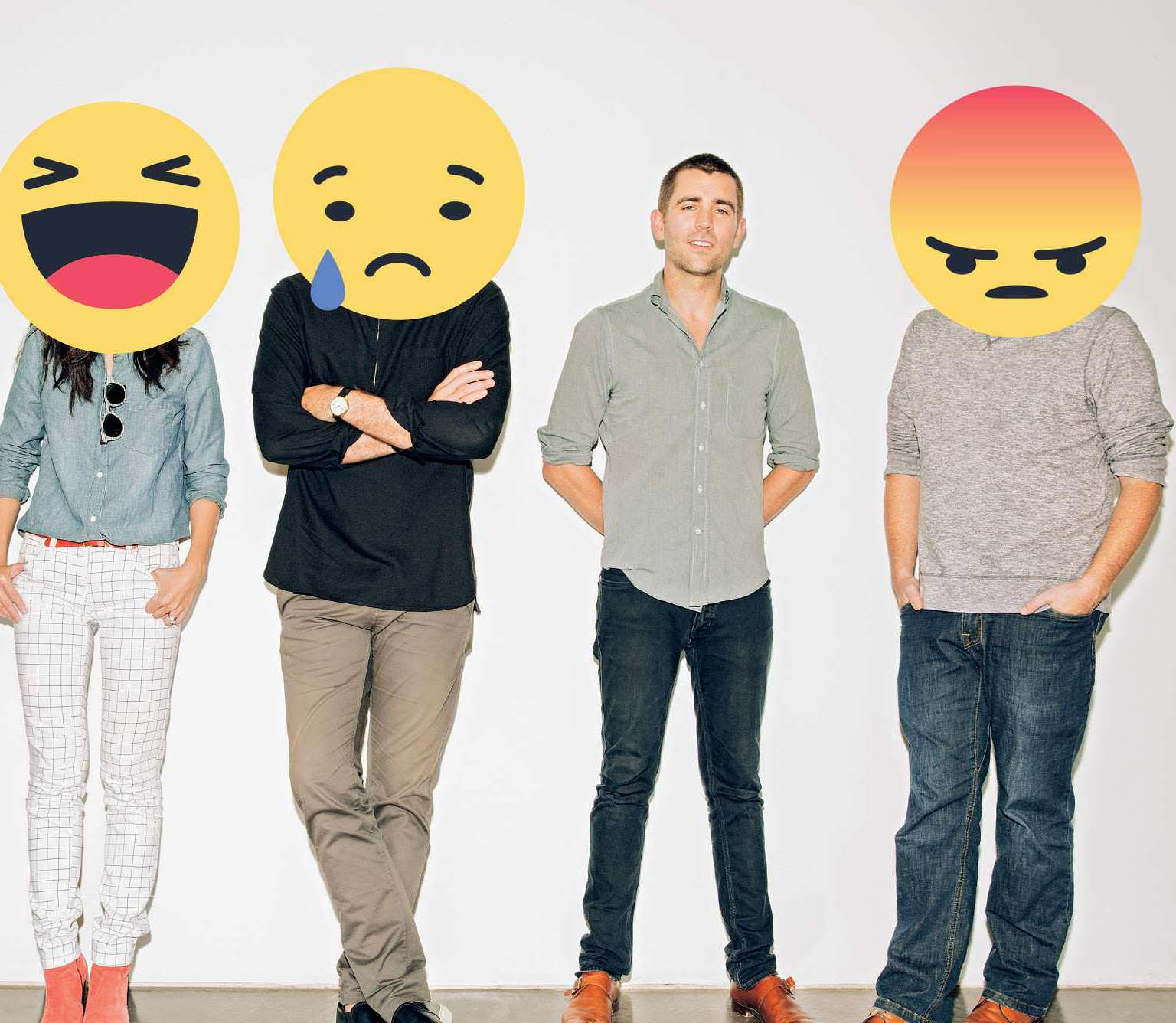Facebook's Chris Cox is messing with one of the most valuable features on the Internet.

The most drastic change to Facebook in years was born a year ago during an off-site at the Four Seasons Silicon Valley, a 10-minute drive from headquarters. Chris Cox, the social network’s chief product officer, led the discussion, asking each of the six executives around the conference room to list the top three projects they were most eager to tackle in 2015. When it was Cox’s turn, he dropped a bomb: They needed to do something about the “like” button.
The like button is the engine of Facebook and its most recognized symbol. A giant version of it adorns the entrance to the company’s campus in Menlo Park,Calif. Facebook’s 1.6 billion users click on it more than 6 billion times a day—more frequently than people conduct searches on Google—which affects billions of advertising dollars each quarter. Brands, publishers, and individuals constantly, and strategically, share the things they think will get the most likes. It’s the driver of social activity. A married couple posts perfectly posed selfies, proving they’re in love; a news organization offers up what’s fun and entertaining, hoping the likes will spread its content. All those likes tell Facebook what’s popular and should be shown most often on the News Feed. But the button is also a blunt, clumsy tool. Someone announces her divorce on the site, and friends grit their teeth and “like” it. There’s a devastating earthquake in Nepal, and invariably a few overeager clickers give it the ol’ thumbs-up.
This story is from the February 1 - February 7, 2016 edition of Bloomberg Businessweek.
Start your 7-day Magzter GOLD free trial to access thousands of curated premium stories, and 9,000+ magazines and newspapers.
Already a subscriber ? Sign In
This story is from the February 1 - February 7, 2016 edition of Bloomberg Businessweek.
Start your 7-day Magzter GOLD free trial to access thousands of curated premium stories, and 9,000+ magazines and newspapers.
Already a subscriber? Sign In

Instagram's Founders Say It's Time for a New Social App
The rise of AI and the fall of Twitter could create opportunities for upstarts

Running in Circles
A subscription running shoe program aims to fight footwear waste

What I Learned Working at a Hawaiien Mega-Resort
Nine wild secrets from the staff at Turtle Bay, who have to manage everyone from haughty honeymooners to go-go-dancing golfers.

How Noma Will Blossom In Kyoto
The best restaurant in the world just began its second pop-up in Japan. Here's what's cooking

The Last-Mover Problem
A startup called Sennder is trying to bring an extremely tech-resistant industry into the age of apps

Tick Tock, TikTok
The US thinks the Chinese-owned social media app is a major national security risk. TikTok is running out of ways to avoid a ban

Cleaner Clothing Dye, Made From Bacteria
A UK company produces colors with less water than conventional methods and no toxic chemicals

Pumping Heat in Hamburg
The German port city plans to store hot water underground and bring it up to heat homes in the winter

Sustainability: Calamari's Climate Edge
Squid's ability to flourish in warmer waters makes it fitting for a diet for the changing environment

New Money, New Problems
In Naples, an influx of wealthy is displacing out-of-towners lower-income workers